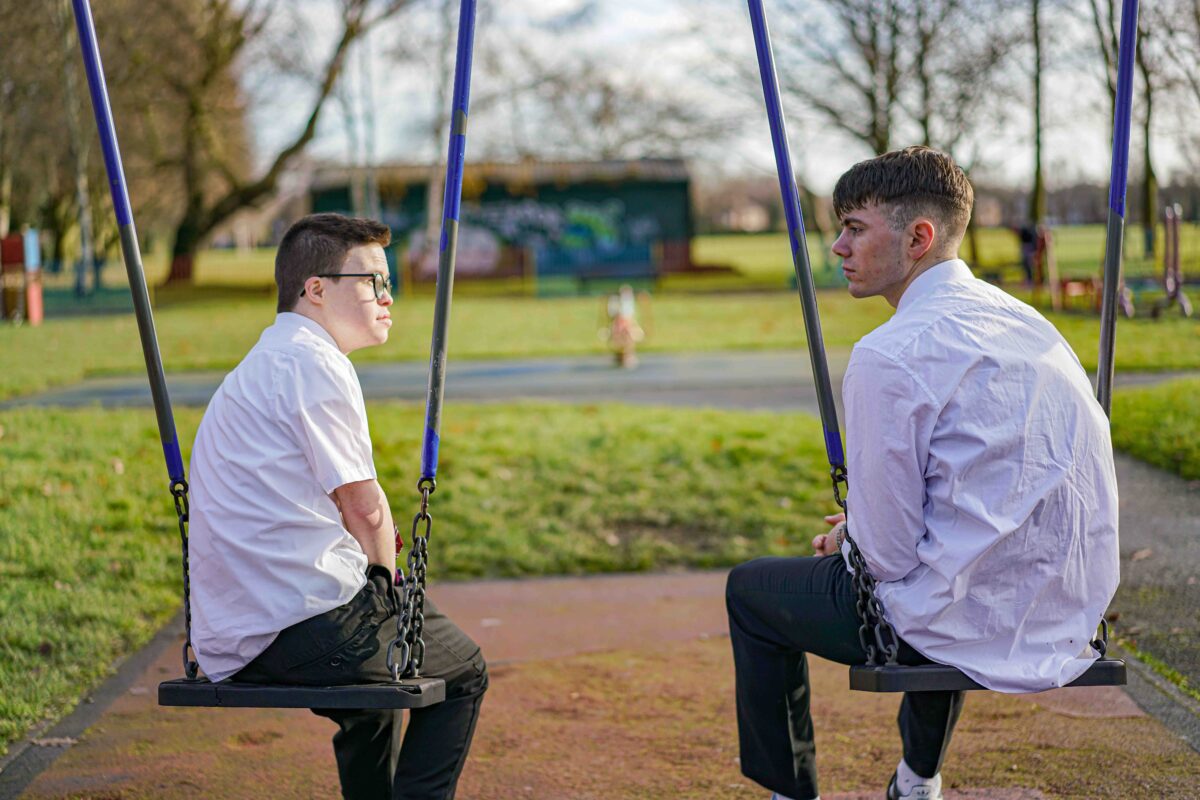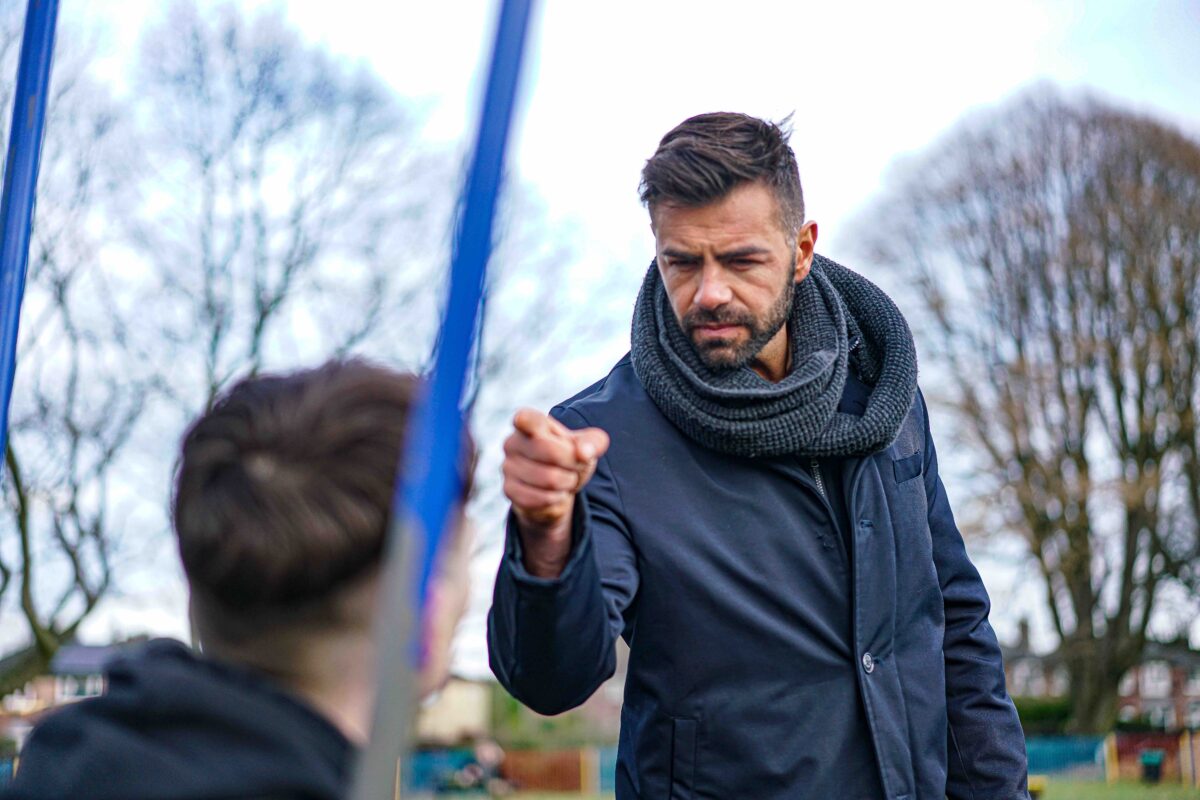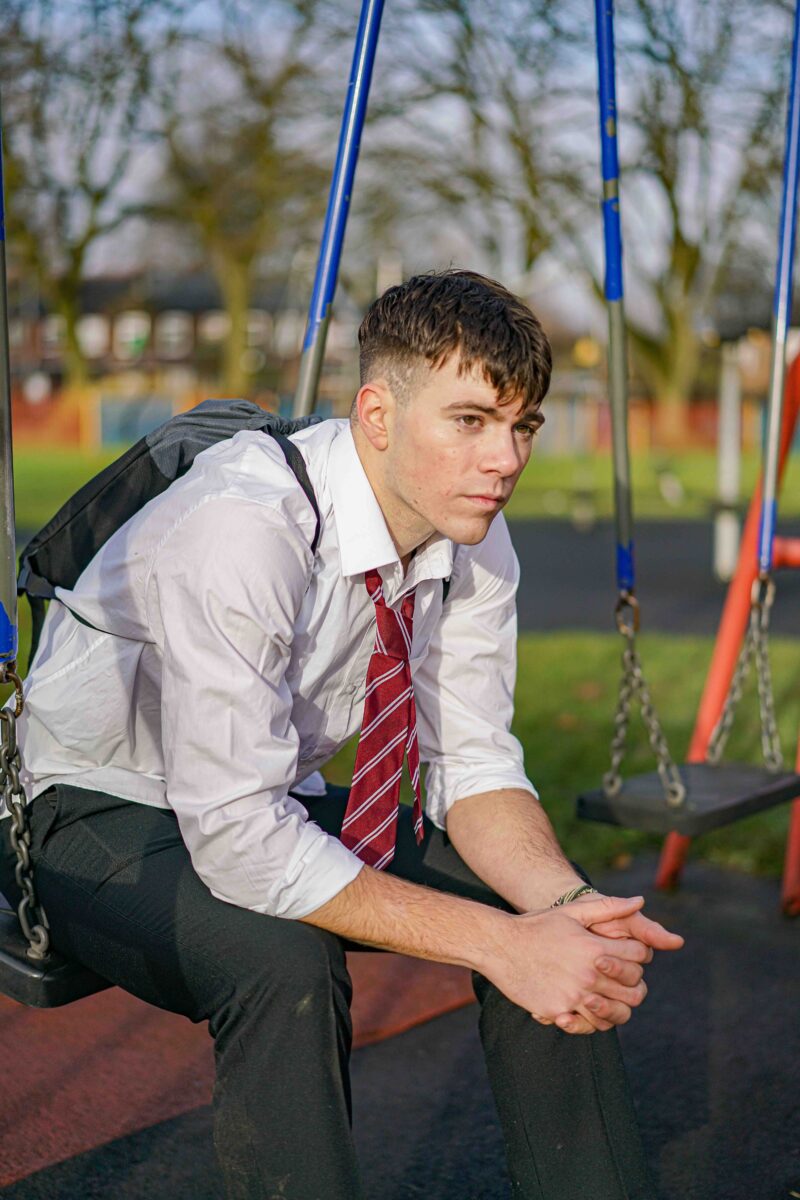Film-making team Lloyd Eyre-Morgan and Neil Ely are a talented AMPAS (Oscar) / BAFTA-accredited team who have been making films in both feature and short form for a number of years. One of their latest works, a short film called S.A.M, focuses on the bond of coming-of-age and love between two teenage boys on a Northern England housing estate.
Film And TV Now recently interviewed the team about the film and their evolution as film-makers:
FILM AND TV NOW: There seems to be a thawing of barriers in terms of the portrayal of disabled characters on screen, which this short is also using as a springboard to explore the complexities of love. What are the challenges of writing these types of characters in a fictional sense whilst aiming to retain the truth of their condition?
LLOYD EYRE-MORGAN: Absolutely – there is a barrier when it comes to portraying disabled characters on screen. Personally I think its the responsibility of writers, directors, artists, film festivals etc to make sure there is visibility and diversity.
NEIL ELY: For me personally it wasn’t a challenge writing a role for a young adult with a learning disability; well no more so than writing a role for a person without a disability.
I’ve had the pleasure of being able to work alongside adults with learning disabilities for 15 years and my life been massively enriched. Bringing the two together, film-making and working with young adults with learning disabilities was awesome. I think there’s so many stories to tell, and hopefully as a film-making team we will get to tell more.
LEM: The film was originally created after a drama workshop with young adults with disabilities who expressed they felt that young people with disabilities were ignored when it came to having a sexuality. We wanted to show that young adults with disabilities can be LGBTQ and can be in relationships ( and not always with someone else who has a disability ).
George Webster who plays Sam brought a lot of improvisation and shared his truth and experiences of living with a disability which were integrated into parts of the film. I hope the film starts some conversations with audiences, about something that I think people are scared to talk about still and shouldn’t be.

FTVN: The film is clearly designed to highlight the potential of disability-driven narratives and we understand that approximately 0.3% of the film and television industry has a disability of one kind or another. In terms of genuine support networks, who would you say is helping to drive home the concerns in film and television?
LEM: I think there are call outs being happening by television and film institutions for more accessibility in the arts for people with disability, but it’s really slow.
We made sure we had on set opportunity and had people with disability involved on screen and off, including having a camera operator come onto set with a disability who did are fantastic b roll footage seen throughout the film. The BFI network and Channel 4 is really great at supporting artists with disability.
There’s also a great drama group in the UK called Mind The gap which is leading the way in creativity and inclusivity with young artists with disabilities. It’s also awesome to see UK disability charity MENCAP launching their own online TV station.
FTVN: The film seems to be cut from the same cloth as programmes like SHAMELESS and SKINS in terms of the profanity and its’ portrayal of dysfunctional families and detached parenthood. How much of an influence were programmes like this on your screenplay for the film?
NE: We love film and television that shows slices of real life, I think we are massively influenced by Shane Meadows style, Ken Loach, Andrea Arnold, we actually had cast improvisation workshops prior to filming to ensure we got natural dialogue, and allowed the actors to shape and develop their characters.
We have previously worked with actors from SHAMELESS and SKINS such as Jody Latham and Liam Boyle. I think these shows shaped our style for sure! Sarah Byrne from SHAMELESS also appears in S.A.M which is a little nod to the influences and also she’s a fantastic actress! Sarah runs a brilliant drama school (Sarah Byrne Acting Academy) with a lot of raw and diverse talent, a lot of the kids from her school can also be seen in S.A.M

FTVN: Tell us about your cast.
LEM: The cast came together really organically, we had previously worked with Sam Retford ( Channel 4’s ‘Ackley Bridge’ ) and knew he would be fantastic in the role, he’s an amazing actor who’s extremely diverse with his performances and is extremely passionate about the films message.
George Webster is a MENCAP ambassador who caught our attention on Twitter, when we watched him presenting for SKY Television. We reached out to him and met him in a service station on the motorway a few days later and the rest is history – he was a star ! David Tag is a regular in UK Soap ‘Hollyoaks’ and we think he’s got a really good naturalistic performance style which suited S.A.M.
FTVN: Tell us about your production team.
NE/LEM: We have a film making family in Manchester, we are really lucky to have really talented sound, camera and crew on our doorstep. Our producer Nell Green was fantastic and brought everything together and made sure we had a really smooth running set.
We wanted to include crew with disability and made sure this happened. Giving young people with disability their first opportunities in the film industry as mentioned earlier.
FTVN: Where did you shoot and for how long?
NE: We filmed in the working class estate that I grew up on, where I have a lot of family still. The local community really came together to support the film by appearing as background artists. We shot over 2 days.
FTVN: You are AMPAS (Oscar) / BAFTA-accredited. How have these organisations helped develop your talents and reach in the industry?
NE: This is one of our first experiences being accredited with these amazing two institutions, we’re excited about just starting S.A.M’s journey and are over the moon to be accredited.
FTVN: We understand you are developing a full feature version of S.A.M. What would you like to explore in a feature script and what will be kept from this short in terms of structure and characters?
LEM/NE: We have a lot more story to tell, it will follow the basis of the short but then go home and explore these boys home lives and we want to follow them over a 3 year period. It’s going to explore people’s perceptions of young adults with disability who have relationships with neurotypical young adults. As with the short there will be a lot of heart and humour.
FTVN: How has the COVID-19 pandemic affected your development as film-makers?
LEM/NE: It’s given us a lot of time to write and have zoom chats with other creatives which is fabulous! For independent filmmakers it feels a scary time, but I hope everyone will be back up and making movies when it’s safe to do so!
FTVN: Finally, what are you most proud of about the short?
LEM/NE: That we managed to make a film that had integrity both on and off screen.





























